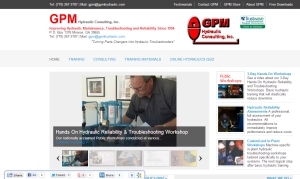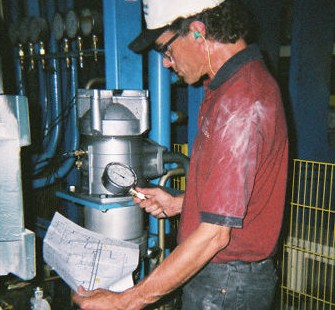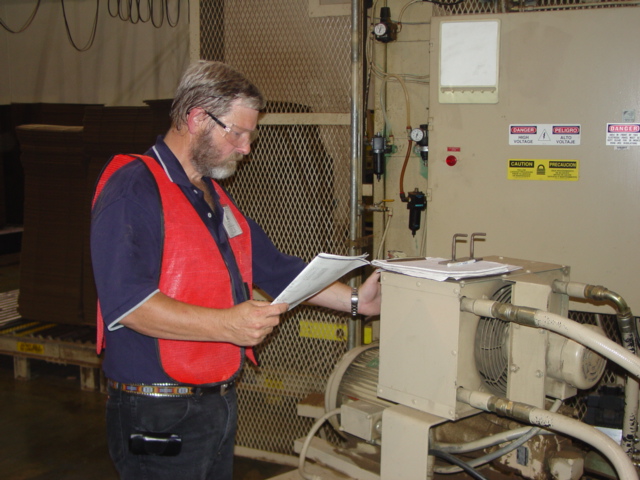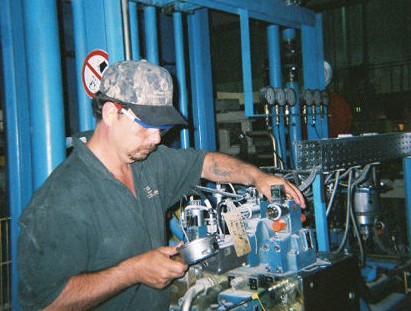I was recently on a consulting visit to a plant where a machine was having trouble with pressure control. Pressure remained at full compensator pressure all the time. This was resulting in severe shock, vibration and leaks developing at hydraulic fittings. They were pretty sure that the pressure was controlled by a proportional valve that acted as a remote compensator for the pump, effectively raising and lowering pressure in proportion to command voltage applied to the valve amplifier. When I inspected the machine, I saw that they were correct about the valve controlling system pressure, but the only way they knew to check the valve was to replace it and see if the problem went away. Even this may have been acceptable, but there was a 4-5 week lead time when they ordered the valve. They would like to know without waiting 4-5 weeks whether the valve was good.
They didn't have a valve test box. If they had, we could have checked the valve in just a matter of minutes. The signal cable could have been removed from the valve and we could have connected the test box to see if we could control pressure from the box. If we could not, the valve would be known to be bad. If we could not, we could have eliminated the valve as the problem, leaving either the signal to the valve, a broken wire or a component in the hydraulic connection to the pump compensator. This is not uncommon in the plants I visit. Almost any company that makes a servo or proportional valve also makes a test box for troubleshooting. They are simple to operate and typically pay for themselves the first time they are used.
We were still able to confirm that the valve was bad - but it took much longer and had a much wider margin for error for someone with not much experience troubleshooting these valves. We removed the valve, took it to a workbench and obtained a 24V power supply. The valve documentation was located and we looked up which two pins were used for supply power, which pin accepted the enable signal and which two pins were used for command voltage. When supply voltage and enable signal were applied, the valve spool did not move (we looked for movement through the valve ports). It did not, confirming that the valve was bad. This procedure, while effective, has significant drawbacks. One, not every plant has a 24V power supply readily available. Two, additional troubleshooting time may need to be used to download the valve documentation to determine the pin arrangement on the connector. Three, have you ever tried to hold five bare wires or connect five alligator clips to those little pins? It's a great opportunity to short the pins and ruin a $5000 valve that was good to begin with.
Most of these boxes can generate a standard signal, switchable to match the specific valve, or you can use a BNC input to test the signal from your PLC. There is usually also a setpoint selector and a stepfunction button. They can be used with either on-board electronics or valves with cabinet mounted amplifiers. Many have a slot for testing amplifier cards as well. Most of these boxes are quite versatile. If you have servo or proportional valves at your plant, I strongly recommend that you consider investing in a good test box. The day will come when you will be glad you did! |
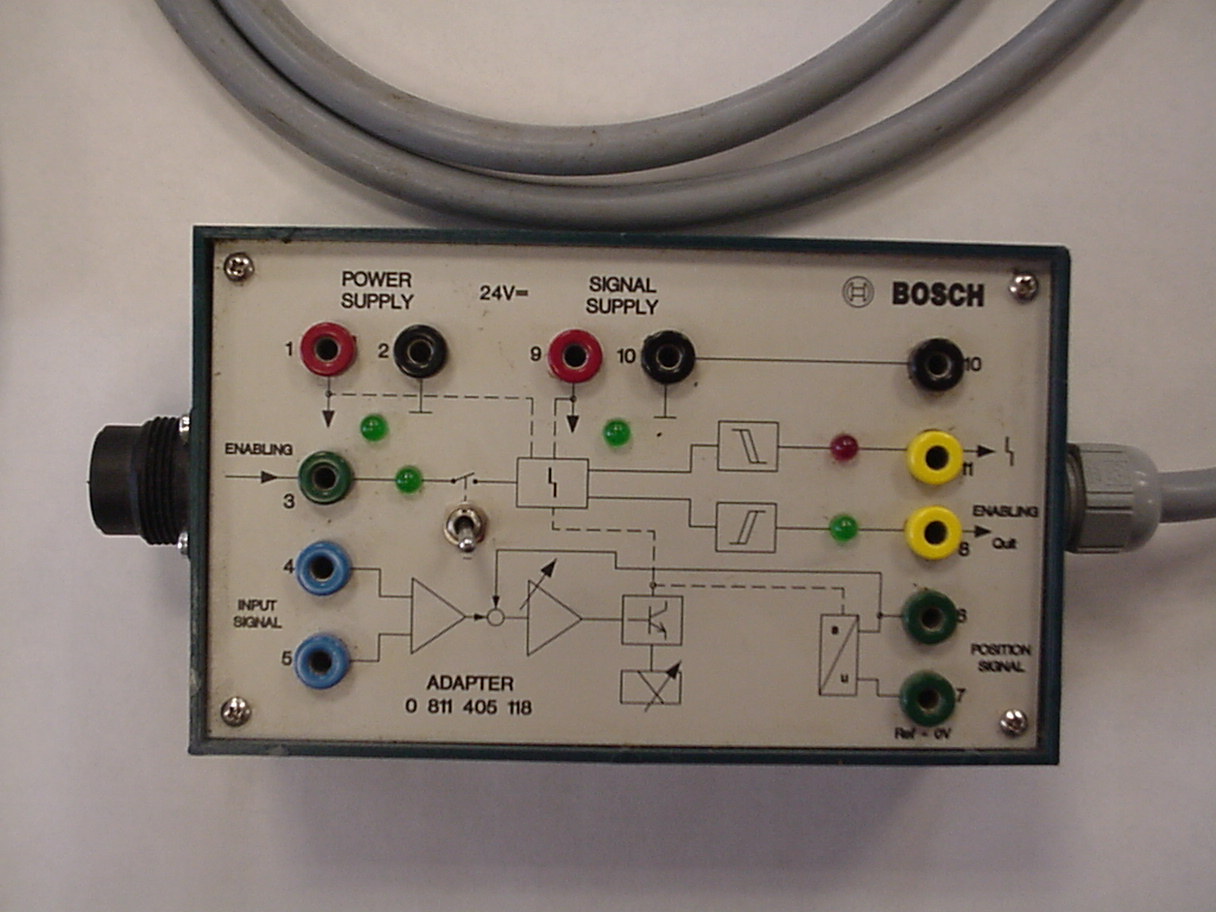
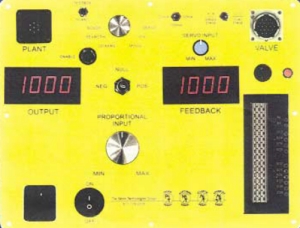 |
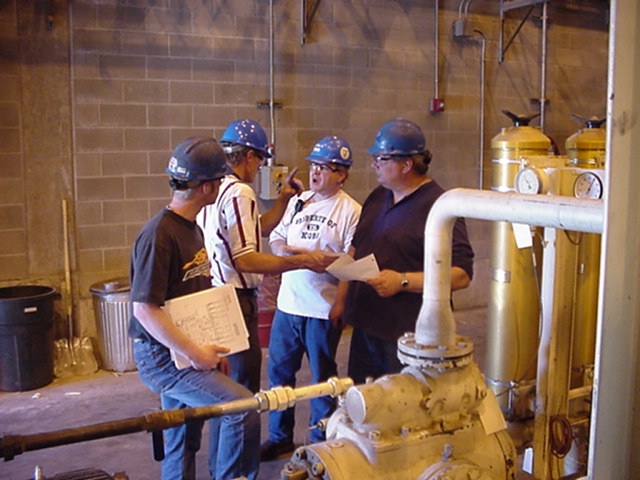
The only preventive maintenance and reliability functions that most plants perform is to change the filters regularly and to check the oil level. When the machine fails, there is little or no information about the system to refer to when troubleshooting. Our consultant will first perform a customized Reliability Assessment on each of your in plant machines. You will receive a Reliability Report on each system with recommendations for immediately improving the system operation, shock, heat, leakage, speeds, etc. You will also be provided with a Reliability and Preventive Maintenance Schedule that can be used to check the condition of the system on a regular basis, reducing un-scheduled downtime. The recorded information will also provide a valuable reference for troubleshooting if a failure of the machine should occur. Pictures will be included throughout the report to identify the reliability test points in the system. The Assessment will be conducted while the machine is operating and will include the following:
- Testing of the pump(s) to determine if the
proper volume is being delivered to the system. By making this test
regularly the pump can be replaced on a down day and not when it fails
and interrupts production.
- Checking the accumulators to make sure they are properly pre-charged which is necessary to achieve the desired speed to maintain production.
- On any given hydraulic system, there should
be some lines that are hot (above 130 degrees), warm (100-130 degrees),
and cool or at ambient temperature. By checking the temperature of
these lines on a regular basis a component failure can be found before
the system fails completely.
- One of the main issues in a hydraulic system
is leakage. One drop of oil that drips once per second will lose 405
gallons a year. If leakage is occurring there is a reason for it. Our
consultant will identify the cause of the leak and recommend the
necessary fix to prevent it from occurring in the future.
- One of the biggest problems in systems today
is that the pressures are out of adjustment which causes excessive
force, heat, leakage and wasted electrical energy. Our consultant will
identify any pressure setting issues and many times correct them during the assessment.
- Check to verify that the pipe and tubing
clamps are properly spaced and are of the proper type.
Make sure that the hoses are properly installed to prevent pre-mature
failure and oil loss.
- Check the condition of the filters if a
visual or electrical indicator is available.
- Verify that the air and water heat
exchangers are operating properly to reduce the oil temperature to an
acceptable level. If the oil temperature is above 140 degrees then oil will start breaking down causing sludge and varnish in the system.
- Check the condition of the breather cap and
recommend a maintenance schedule.
- Sound checks to determine pump cavitation,
aeration or valves bypassing in the system.
Call (770) 267-3787 to schedule your Reliability Assessment.
|







